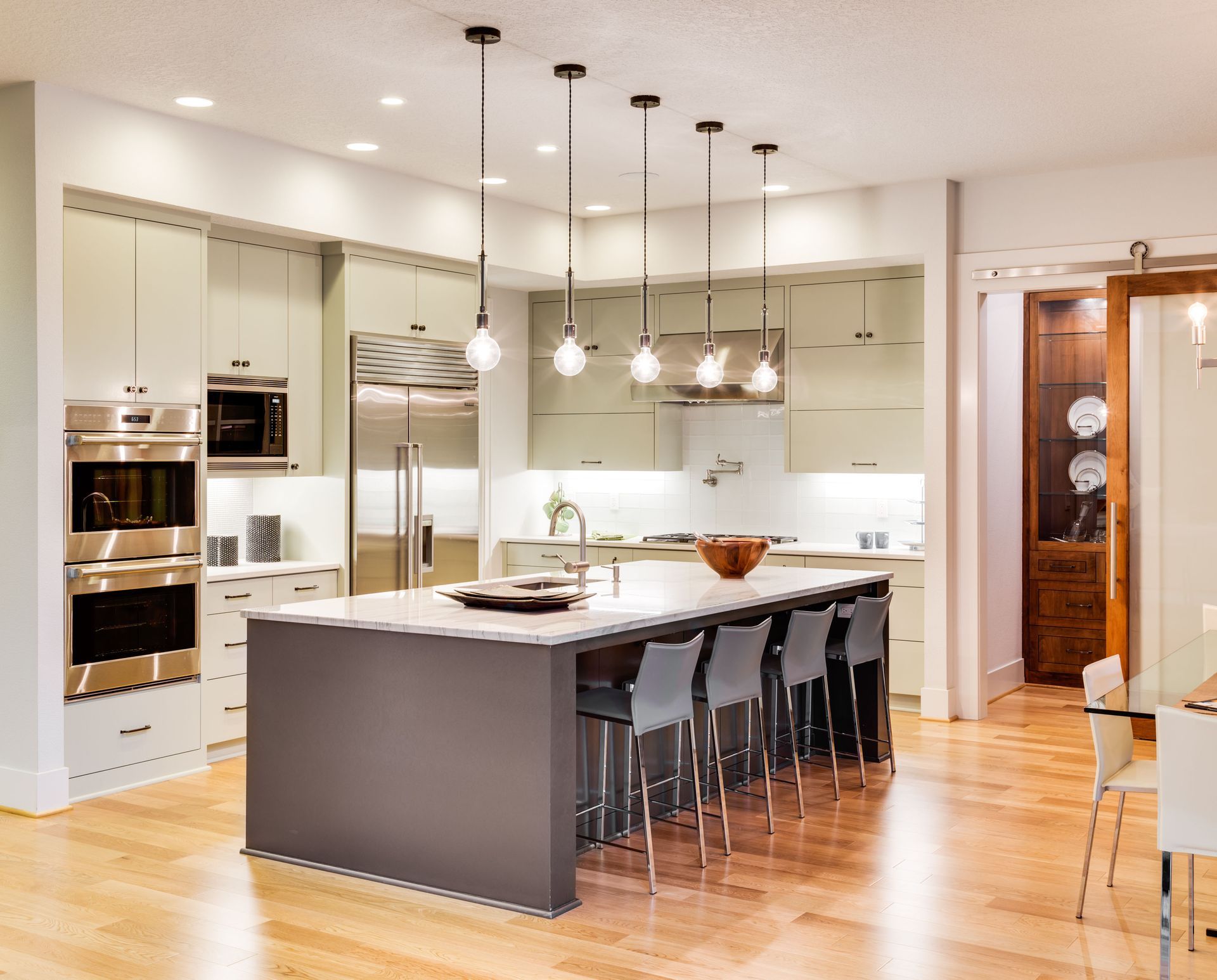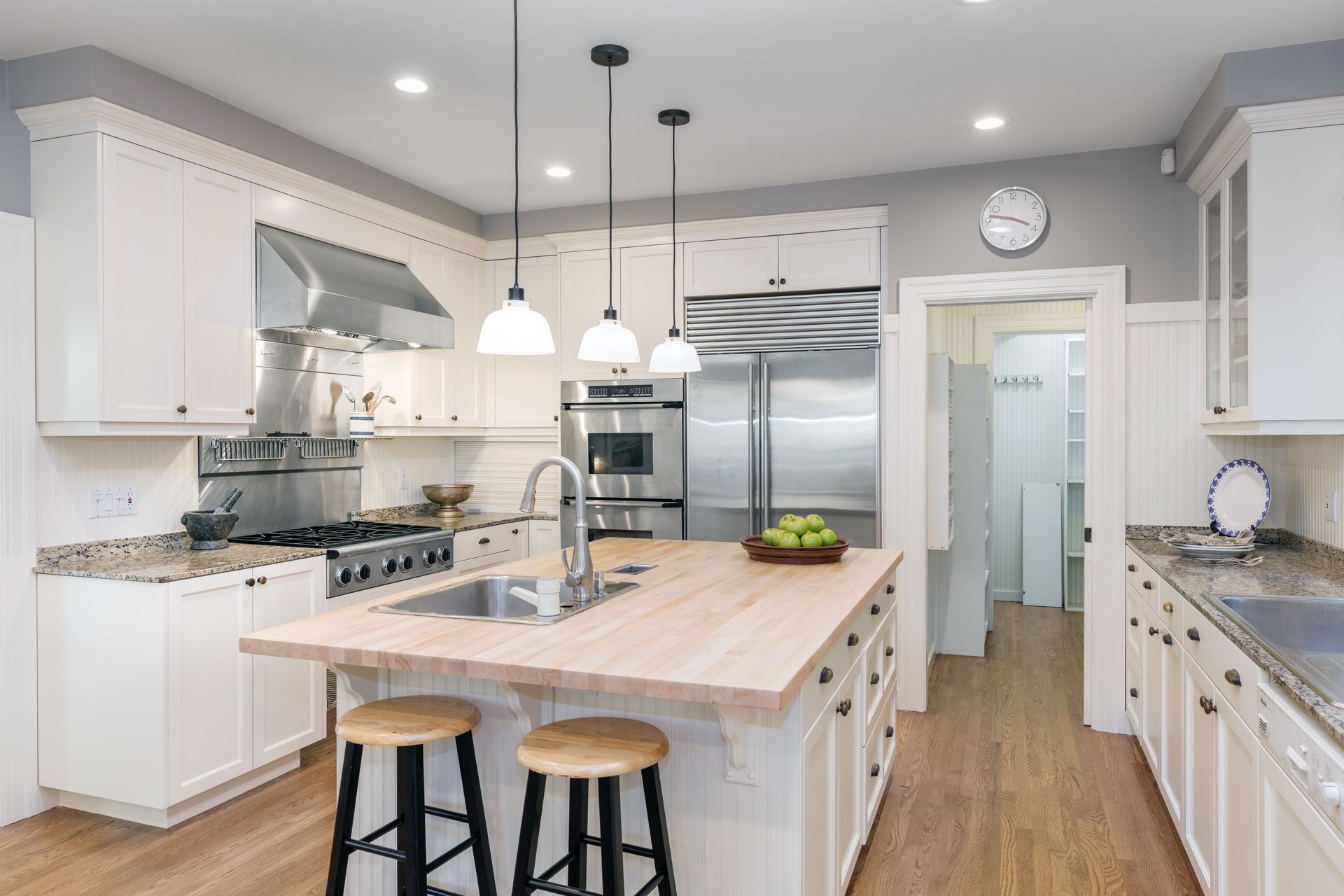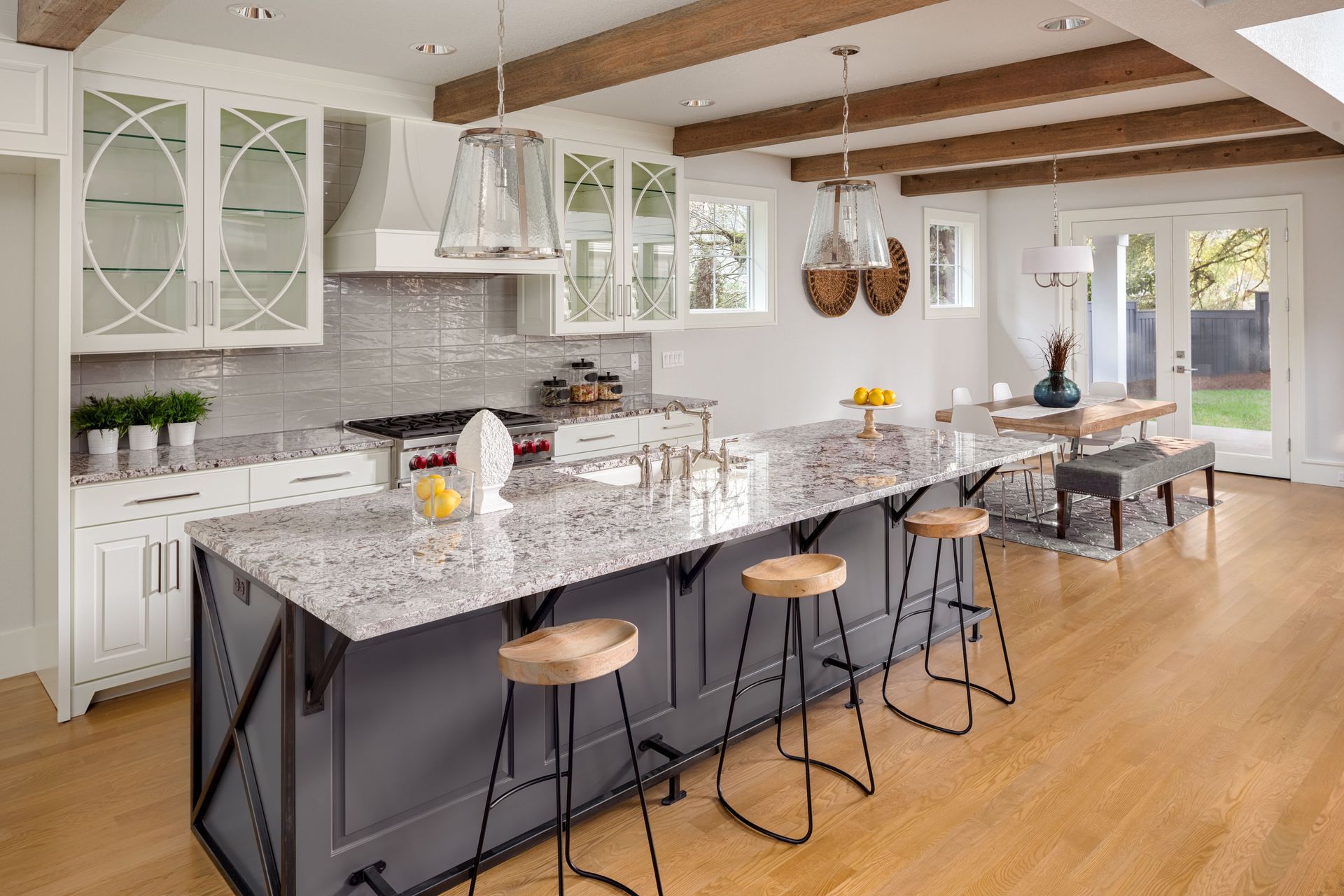6 Things to Consider Before Starting a Remodeling Project
Remodeling a home is an ambitious venture that can transform your living space to better suit your lifestyle and preferences. However, it’s also a process that requires thoughtful planning and clarity of purpose. Clearly distinguishing between your needs and wants in a remodeling project is crucial for achieving both functionality and satisfaction. Needs are those essentials that must be met for practicality and comfort, such as updated wiring or additional storage space. Wants, on the other hand, enhance the aesthetic and experiential qualities of your home, like a skylight or a home theater setup.
Establishing a cohesive vision for your remodeling project builds a roadmap for success. This vision should incorporate both the aesthetic elements—such as colors, finishes, and materials—and the practical aspects, like spatial flow and utility. Referencing inspiration from design magazines or online galleries can help refine your preferences. Prioritization also plays a major role. Deciding which features of your remodel matter most helps you stay focused and prevent unnecessary expenses. Considering the resale value is another smart step. According to HomeGuide, most remodeling projects recover about 50% to 85% of their original cost, meaning choices that balance personal flair with widely appreciated upgrades can enhance both satisfaction and future returns. Lastly, long-term needs should be factored in. Life changes, such as growing families or aging in place, may shape the design decisions you make today, ensuring the remodel continues serving you for years.
1. Establish a Budget
A well-planned budget is the backbone of a successful project. Determining overall costs begins with researching and estimating expenses associated with materials, labor, permits, and additional fees. Getting a clear picture of the financial scope allows you to make informed choices and avoid unexpected strain.
Equally important is planning for contingencies. Setting aside 10-20% of your total budget for unforeseen challenges gives you flexibility when surprises arise, such as hidden structural issues or supply delays. Exploring financing options further supports the feasibility of your project. Home equity loans, personal loans, and credit lines each offer advantages depending on your financial circumstances. Comparing interest rates and repayment terms helps you find a comfortable fit.
Detailed written estimates from multiple contractors also strengthen your decision-making. Comparing proposals allows you to identify fair pricing and clarify what services are included. While reviewing these, remember that balancing quality and cost is essential. Opting for the cheapest bid might save initially but often costs more in the long run through repairs or replacements. Choosing a remodeling service that values craftsmanship and durability ultimately offers better returns on your investment.
2. Choose the Right Professionals
Your choice of contractor can make or break your remodeling experience. Start by researching potential contractors through referrals, online reviews, and client testimonials. Past projects and reputation serve as strong indicators of reliability.
Checking credentials is a non-negotiable step. A reputable remodeling service will hold proper licensing, insurance coverage, and certifications where applicable. These not only demonstrate credibility but also protect you legally. Clear communication with professionals is equally critical. Outlining your vision, timeline, and budget upfront prevents misunderstandings and keeps expectations aligned.
Reviewing contracts carefully before work begins ensures clarity. Contracts should specify everything from payment schedules and materials to timelines and procedures for handling changes. Taking the time to read the fine print saves headaches later. Beyond paperwork, establishing a strong working relationship fosters a collaborative environment. Open dialogue, regular updates, and mutual trust help resolve issues efficiently and contribute to a smoother project from start to finish.
3. Consider Timing and Season
Timing is another factor that shapes the success of a remodel. Understanding project duration helps you plan around disruptions and prepare for each phase. Conversations with your contractor should outline estimated start and completion dates, as well as milestones along the way.
Seasonal influences also matter. Many homeowners prefer spring and summer for renovations due to favorable weather conditions, which reduce risks of weather-related delays. On the other hand, scheduling during slower seasons may provide greater contractor availability and possibly lower costs. Lead times for materials must also be accounted for. Ordering high-demand items or custom pieces early prevents unnecessary slowdowns.
Personal schedules add another layer of consideration. Coordinating around holidays, vacations, or major family events minimizes disruption. Despite careful planning, delays can still occur. Building flexibility into your timeline prepares you mentally and logistically to handle unexpected obstacles without derailing the entire process.
4. Address Legal Requirements
Legal considerations are critical to protect both your investment and compliance with local authorities. Researching building codes before initiating work helps confirm your plans meet city or county requirements. Skipping this step can result in fines or even project shutdowns.
Applying for permits is equally necessary. Proper permits validate the work, uphold safety standards, and document compliance with regulations. Contractors who are part of a reliable remodeling service often assist in identifying and securing the necessary permits, streamlining the process. Conducting property surveys is another precaution that identifies zoning restrictions or boundary concerns. This prevents conflicts with neighbors and avoids legal disputes down the road.
If you live in a neighborhood governed by a homeowners association (HOA), their approval is often required before breaking ground. Early communication with your HOA promotes cooperation and smooth approval. Safety regulations also deserve careful attention. Compliance with safety standards protects workers during construction and safeguards the integrity of your home once renovations are complete.
5. Plan for Living Arrangements
Remodeling often disrupts daily life, so planning living arrangements in advance makes the process more manageable. For major projects—particularly kitchen or bathroom remodels—temporary relocation may be necessary. Discussing the project scope with your contractor helps you evaluate whether staying on-site is feasible.
Protecting unaffected areas within your home is also important. Dust barriers, plastic coverings, and sealed-off spaces preserve cleanliness and maintain some normalcy amid the work. Arranging for temporary utilities further supports your comfort. If plumbing or electricity will be disrupted, proactive planning for alternatives reduces inconvenience.
Daily disruptions are inevitable, but anticipating them lessens stress. Noise, dust, and reduced access to certain areas call for adjustments in routines and household dynamics. Establishing coping strategies, like creating quiet workspaces or planning meals differently, eases the strain. Finally, keeping family members informed fosters understanding and cooperation. Clear communication about the timeline, expectations, and impacts encourages collaboration and helps maintain household harmony.
6. Think About Long-Term Value
Remodeling isn’t just about today—it’s about creating lasting benefits. Hiring an experienced remodeling service not only supports a smoother renovation process but also contributes to long-term value. Quality design and construction can significantly increase property value, making your home more appealing to buyers. Functional improvements like storage solutions, energy-efficient appliances, and smart layouts also enhance daily living.
Durability plays a major role as well. Low-maintenance materials reduce upkeep, while sustainable upgrades align with modern priorities and can lower utility costs. According to the National Association of Realtors, 55% of people believe that a good kitchen could convince them to buy a home they otherwise wouldn’t. This fact highlights how strategic remodeling choices can directly influence resale potential. Ultimately, thoughtful planning and professional craftsmanship transform your remodel into an investment with enduring returns.
Remodeling your home can be one of the most rewarding projects you undertake, but success depends on preparation and informed decision-making. By defining your goals, creating a realistic budget, selecting the right professionals, considering timing, addressing legal requirements, and planning your living arrangements, you’re laying the groundwork for a smoother journey. Thinking about long-term value and choosing the right remodeling service will help you enjoy your improved space now while also strengthening your property’s future appeal. According to HomeGuide, most remodeling projects recover about 50% to 85% of their cost, underscoring the importance of smart choices along the way.
If you're ready to take the next step toward transforming your home, reach out to DBR Construction. With thoughtful planning and reliable guidance, you can achieve a remodel that enhances your lifestyle today and creates lasting value for tomorrow.




Share On: